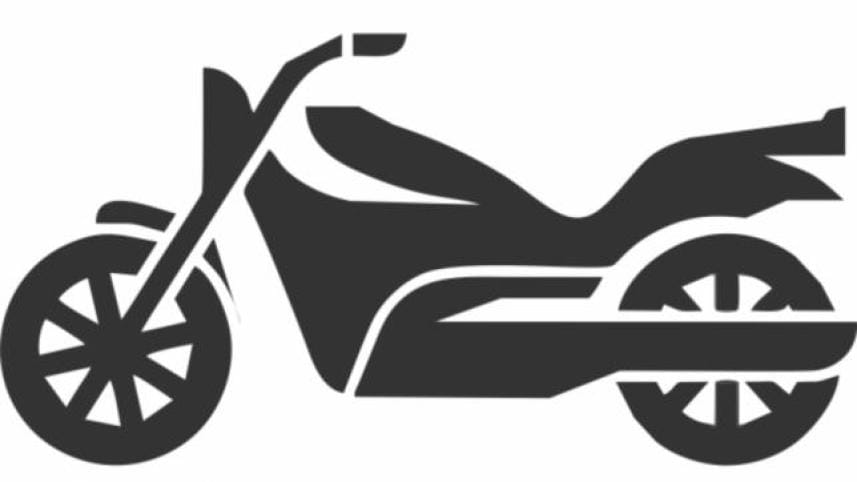Policy gets nod to promote locally made motorcycles

The cabinet yesterday gave the go-ahead to a policy to facilitate the motorcycle manufacturing industry's development which would lead to the diversification of the apparel-dominated export basket.
The government aims to increase the sector's contribution to the GDP from the present 0.5 percent to 2.5 percent and expand the industry's capacity, now dominated by assembling of imported components.
“The policy is being formulated to facilitate a world class motorcycle industry instead of the existing assembling plants,” Cabinet Secretary Mohammad Shafiul Alam told reporters after a meeting chaired by Prime Minister Sheikh Hasina.
He said the Motorcycle Industry Development Policy 2018 aims at creating a lot of employment by saving hard-earned foreign currency.
On average about 1,000 units of two-wheelers are sold every day in the country as the demand is spiralling for the mobility it provides in the congestion-ridden urban life. Industry operators say five years ago the number was around 550.
Businesses have long been demanding the plan to get a clear idea of the government's position towards the sector before going for large investments.
Manufacturers and assemblers were demanding the policy so that they could get a consistent and predictable environment, particularly centring taxes and duty rates, instead of fluctuations every year.
The industries ministry drafted the policy at the start of this year.
Meanwhile the National Board of Revenue (NBR) has been offering reduced supplementary duty on import of components to encourage expansion of manufacturing units.
The incentive resulted in nearly a dozen firms lining up to make motorcycles and components. Runner Automobiles is already making the two-wheelers and exporting to neighbouring Nepal.
In addition to the draft policy nod, Bangladesh Bank yesterday issued a circular offering a 10 percent cash incentive on motorcycle export.
Cabinet Secretary Alam said the government would give tax benefit to build up the motorcycle industry. The NBR will later frame a relevant policy. He said at present the industry employs about 5 lakh people and the government plans to increase it to 15 lakh by 2027.
The draft policy aims to locally manufacture 5 lakh motorcycles a year by 2021 and double that by 2027.
“The mission is to achieve the capacity for meeting the domestic requirement by 2027 and develop a modern and competitive vendor (component maker) industry helpful for motorcycle industry,” said the industries ministry's draft policy.
The draft policy has sought to provide reduced duty benefits for motorcycle manufacturing. It wants to apply 1 percent duty on raw materials of components.
Some components like the battery, chain and seats are currently made in Bangladesh. The draft policy said a horizontal production strategy was necessary for large scale production.
The finished products of one industry are used as raw materials of another in this sector and one production unit creates demand for another.
The backward linkage industry will be developed on a priority basis as it is not feasible for manufacturers to make all the required items for a motorcycle.
Financial and technical support will be given to mould and spare parts makers in the first phase, it said, adding that incentives would also be provided to component makers.
The draft also seeks to provide duty benefit to export-oriented firms to import capital machinery and spare parts. The privilege will be given for at least five years, it added.
SHISHU ACADEMY ACT APPROVED
The cabinet secretary said the academy had so far been run under a 1976 ordinance and the new Bangladesh Shishu Academy Act 2018 was being framed with no large scale changes following a court directive.
At present the academy's chief executive officer is called a director, which will be changed to director general.
Moreover, a 19-member management board will be formed, with its chairman being a noted personality or child litterateur who has won the Independence or Ekushey Award.
The Ministry of Science and Technology also placed Bangladesh Engineering Research Council Act 2018 before the cabinet.
The cabinet secretary said a four-member committee has been formed comprising ministers who are experts in engineering and architecture.
They are LGRD Minister Khandker Mosharraf Hossain, Housing and Public Works Minister Mosharraf Hossain, Information Minister Hasanul Haq Inu and Science and Technology Minister Yeafesh Osman.



 For all latest news, follow The Daily Star's Google News channel.
For all latest news, follow The Daily Star's Google News channel.
Comments